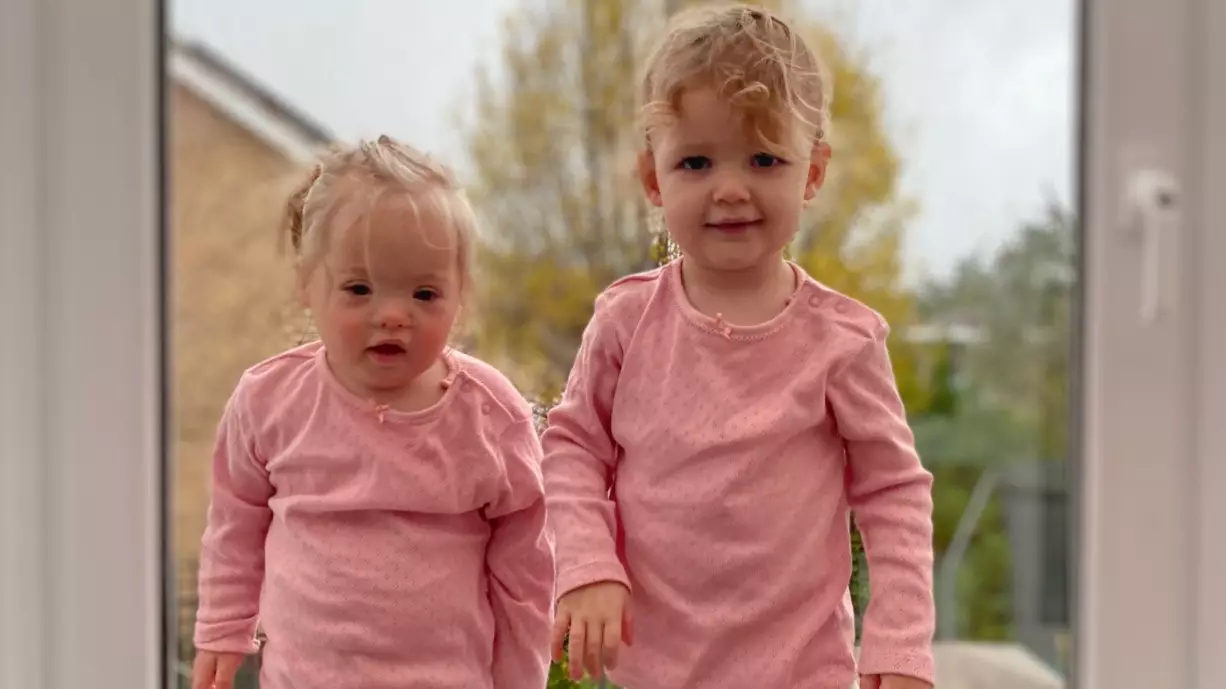
When Nicola Bailey prematurely gave birth to her twin daughters, Harper and Quinn, at 32 weeks, they were whisked away to a special care unit before she'd barely had chance to catch a glimpse of their faces.
After a long and painful wait for news of their wellbeing, two doctors arrived in Nicola's hospital room looking worried and nervous.
So when one began saying he was "really sorry to have to tell you this" Nicola immediately thought one of her babies had passed away.
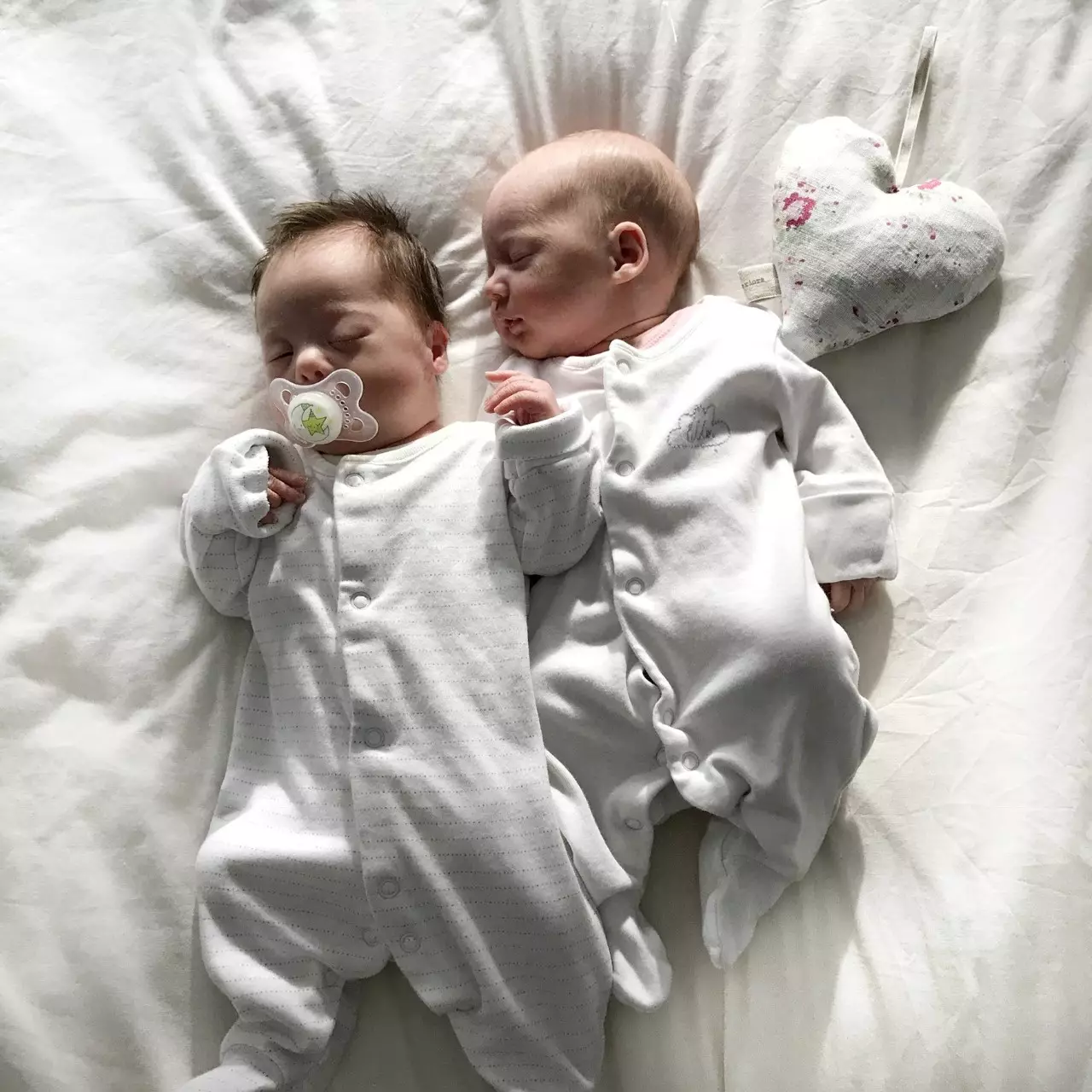
They hadn't. The "sad news" was that eldest twin Harper, who was born 38 minutes before her sister, had Down's syndrome - a condition which has just a one in a million chance of occurring during a twin pregnancy.
Nicola, along with husband Todd, were subsequently handed an information pack - along with an adoption leaflet - before finally being able to see their daughters.
The family, from Sheffield, have since challenged the way in which they were told about Harper's condition, with Nicola now educating medical staff - including consultants, midwives and sonographers - on how to effectively communicate with parents in similar situations.
With 40,000 people in the UK having Down's syndrome, the 33-year-old nurse is on a mission to educate others, in a bid to help parents make more balanced and informed decisions about their children.
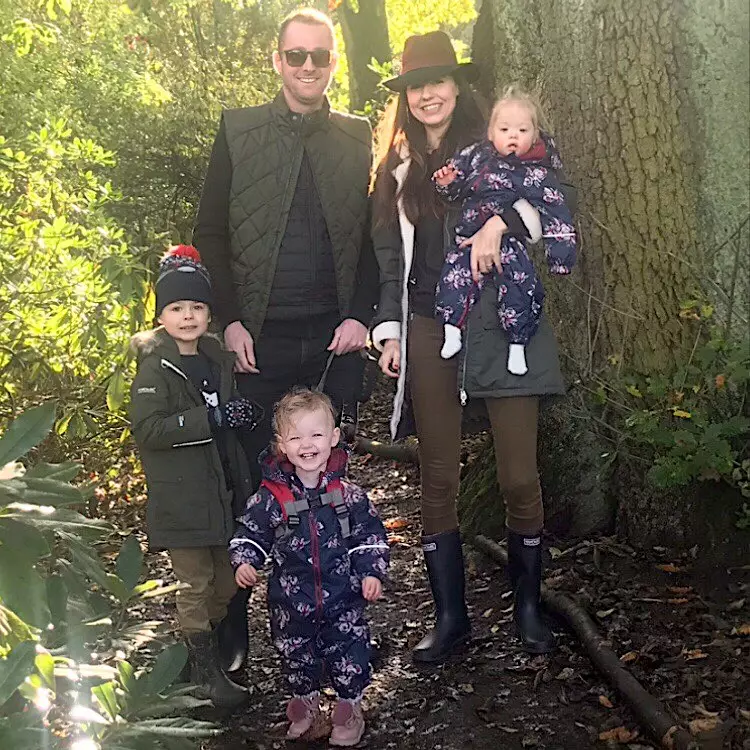
"Only up until around six months ago could I even talk about the birth without breaking down in tears, mainly because I feel we were robbed of being able to celebrate Harper being born," Nicola explained.
The mum immediately went into a grieving process and found it difficult to bond with Harper - something she now feels enormous guilt over.
"It is very common with a diagnosis of Down's syndrome to go through grieving. With all the negativity, it made me not want to bond with her. You're made to feel as though their life is valued less," she explained.
"Of course, doctors do have to give you all the factual information, but I think the first thing they could say would be, 'congratulations, both girls are doing perfectly fine, they're beautiful, we do have some suspicions Harper might have Down's syndrome...'
"If they'd done it like that it would have been less traumatic, but the way they deliver the news, you think your child is dying - it's a horrible way of receiving information."
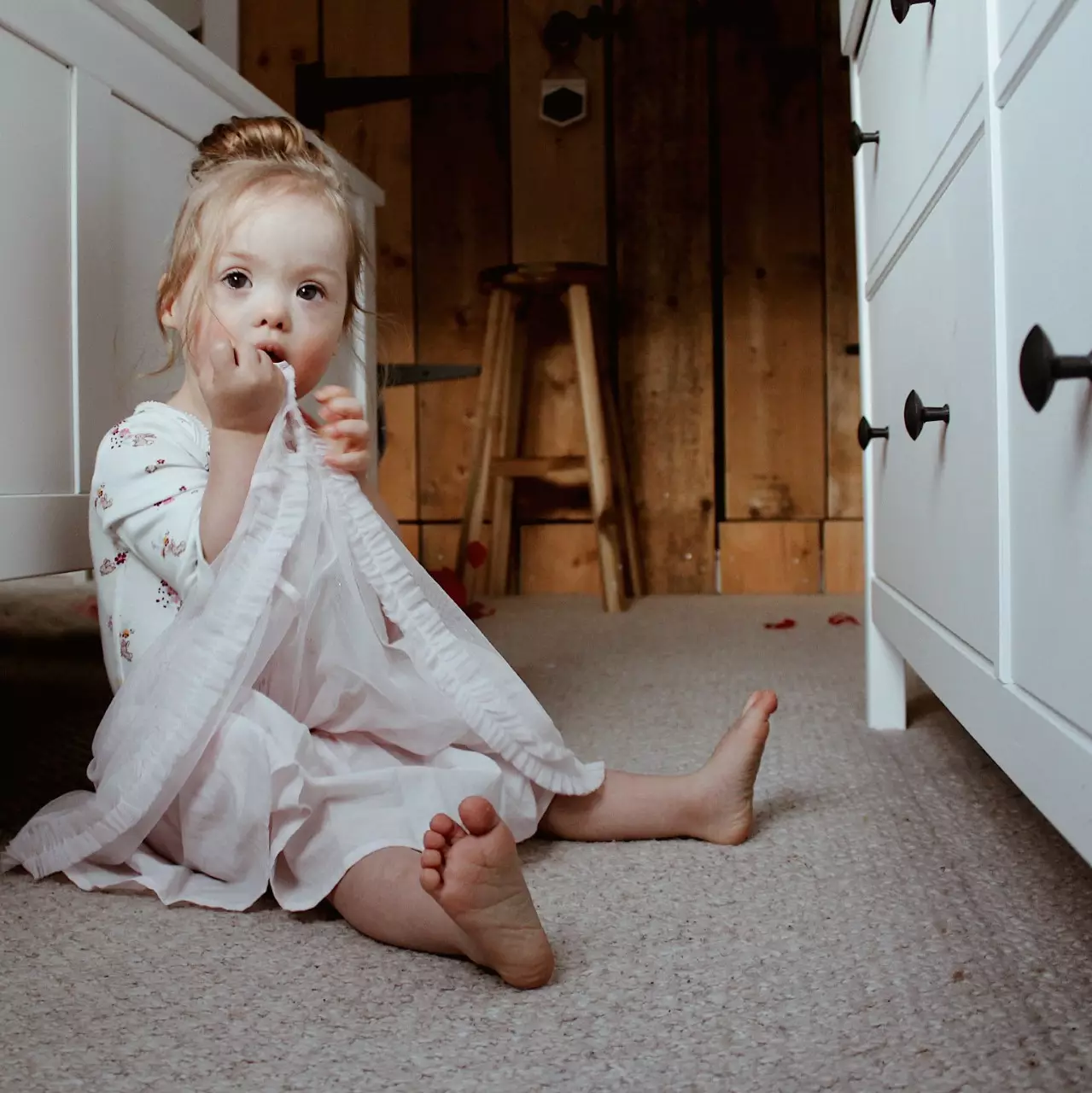
Nicola, who underwent a series of tests while pregnant, admits she was initially angry that Harper's condition had been missed.
"If we'd known in advance we could have put plans in place," she said. "However, in hindsight I'm glad we didn't know as it would have been so stressful.
"I had moments after she was born where I grieved. I feel awful about that now because I remember looking at her and thinking, 'I don't know what to do with you, am I going to be who you need me to be?'
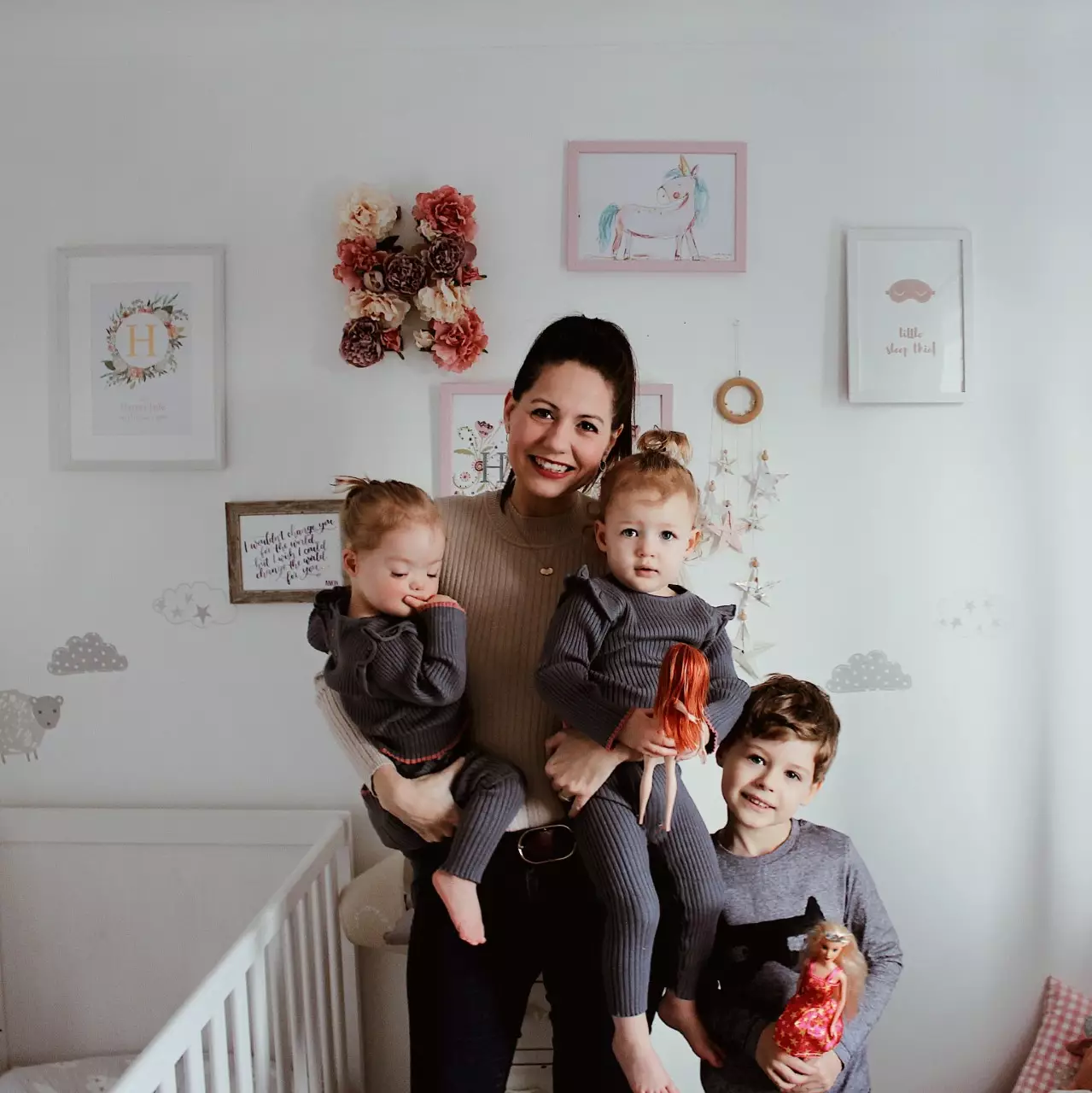
Nicola, who admits she sometimes feels like an "awful mother" for some of the thoughts that crossed her mind, says having Harper has "changed her perception" about the condition.
And while she's not anti-abortion, she believes parents need to be given more balanced information about Down's syndrome, instead of an influx of negativity and fear.
Currently, all pregnant women are offered a screening at 12 weeks and if the results come back as 'high chance' they are offered further diagnostic tests that can tell for certain, but these carry a risk of miscarriage. They are also offered an abortion.
At present, the screening isn't very accurate. In fact, 96 per cent of people with Down's syndrome were diagnosed at birth. Of those that are detected during pregnancy, 98 per cent of parents opt for an abortion.

"People born with Down's syndrome can live into their seventies," Nicola says. "The genetic testing offered at 12 weeks also tests for Edwards' syndrome and Patau's Sydrome - conditions in which many children don't live past their first birthday. To me, those two conditions are totally different to what Down's syndrome is.
"I've spoken to a lot of mums who decided they wanted to go ahead with the pregnancy but were offered abortions time and time again up until they were 38 weeks. If the mum has already said she doesn't want a termination, that should not be necessary."
The NHS is said to be considering offering a new blood test - currently only available privately - which has a 99.9 per cent success rate for diagnosing Down's syndrome.
Nicola, who blogs about raising a child with the condition, adds: "Mums message me on Instagram to say they've been traumatised because they aborted their baby with Down's syndrome - but after seeing Harper, that's not the picture they were sold.
"That breaks my heart; they're grieving all over again, because they're seeing something that isn't what they thought their baby was going to be."
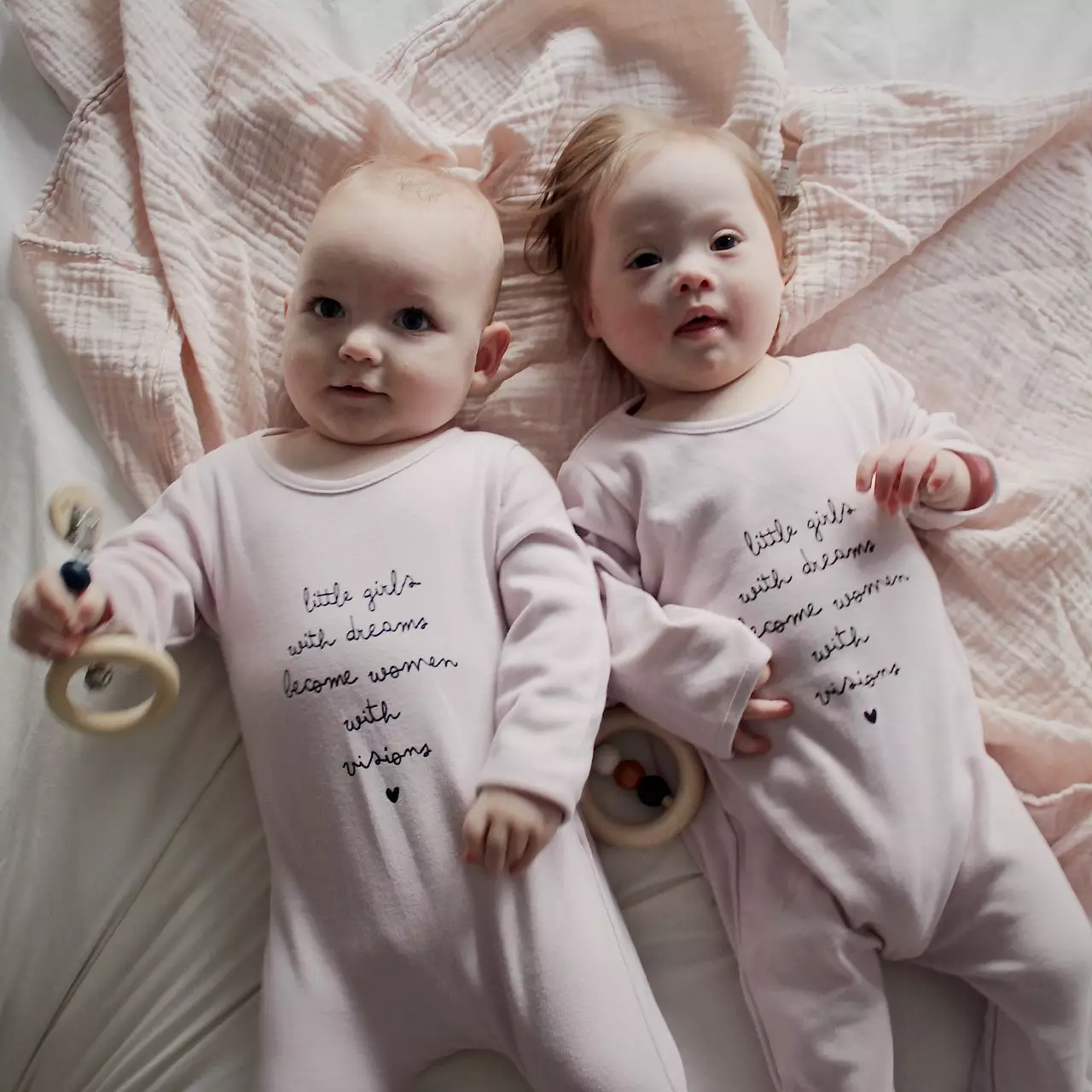
The twins have just celebrated their second birthday and two years on, Nicola has set up an Instagram page and a blog to document their lives and help educate others.
She also runs parent groups as well as workshops and classes to train medical staff on how to approach a Down's syndrome diagnosis.
One of the main challenges is experts' use of language, Nicola explains: "A doctor once asked, 'Are you sure she's got Down's syndrome? All the other ones I've seen aren't as cute as she is.' That's coming from medical staff.
"She does food shopping, she goes to Tenerife three times a year, she makes soaps and sells them - what lack of quality of life is she having?
"She's living a normal life of a 36-year-old, she's happy. She sends me pictures on a Friday when she's drunk doing tequila shots with her friends!"
Harper has a heart condition linked to Down's syndrome - an atrioventricular canal defect (also referred to as a 'hole in the heart') which she'll need open heart surgery for later this year.
"Even though they will have struggles and limitations, people with Down's syndrome still lead a very happy life," explained Nicola.
"A lot of people say to us, 'would you prefer for her not to have Down's syndrome?' Obviously, you want your children to be as healthy as possible, but equally I would never want to take the Down's syndrome away from Harper.
"If you take the Down's syndrome out of Harper, she isn't Harper anymore. She sees the world the way she does because of who she is. It is who she is meant to be."
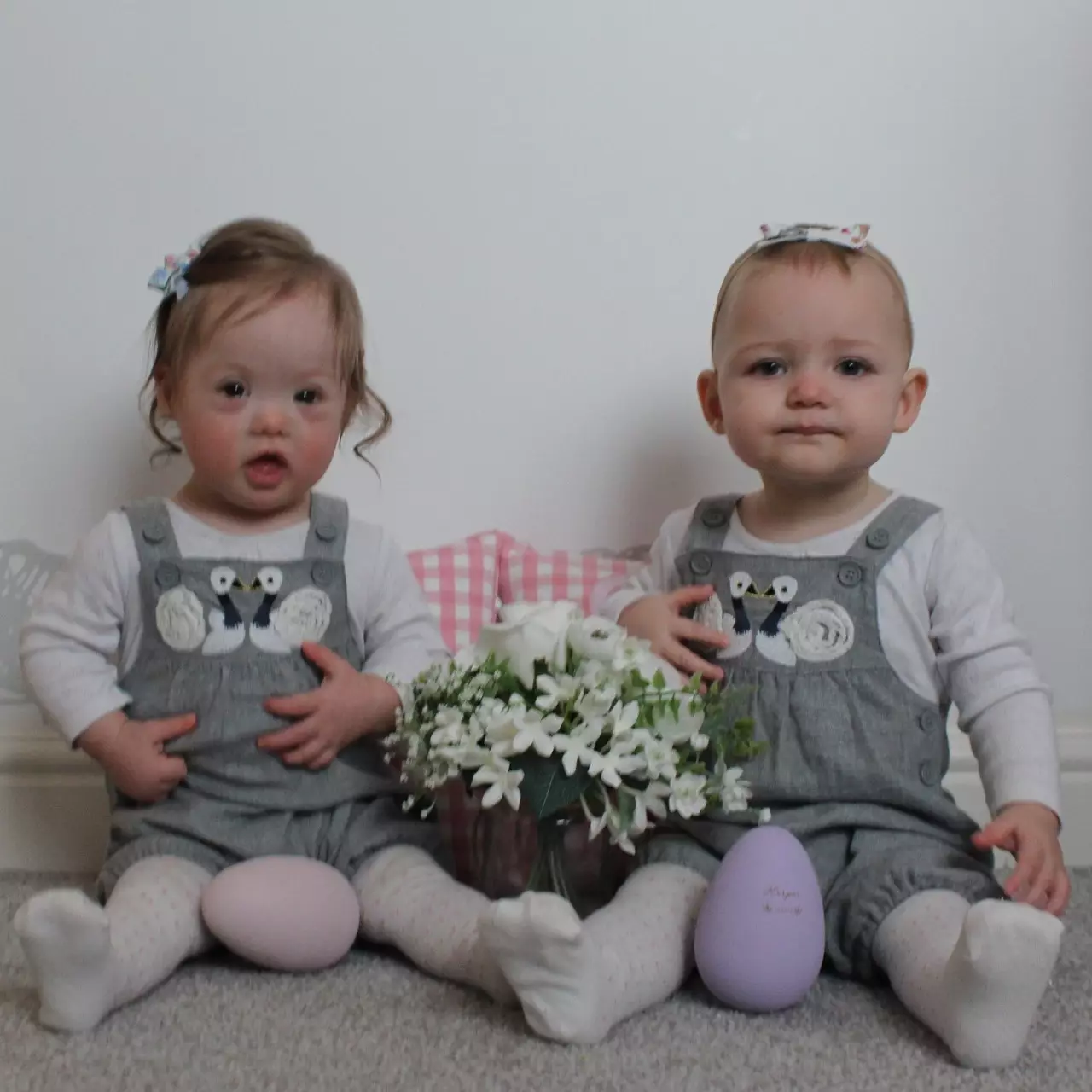
For more information, you can read Nicola's blog, Bailey and the Babies, or visit her Instagram page, @baileyandthebabies.
Topics: Life News, Parenting, Downs Syndrome, Health